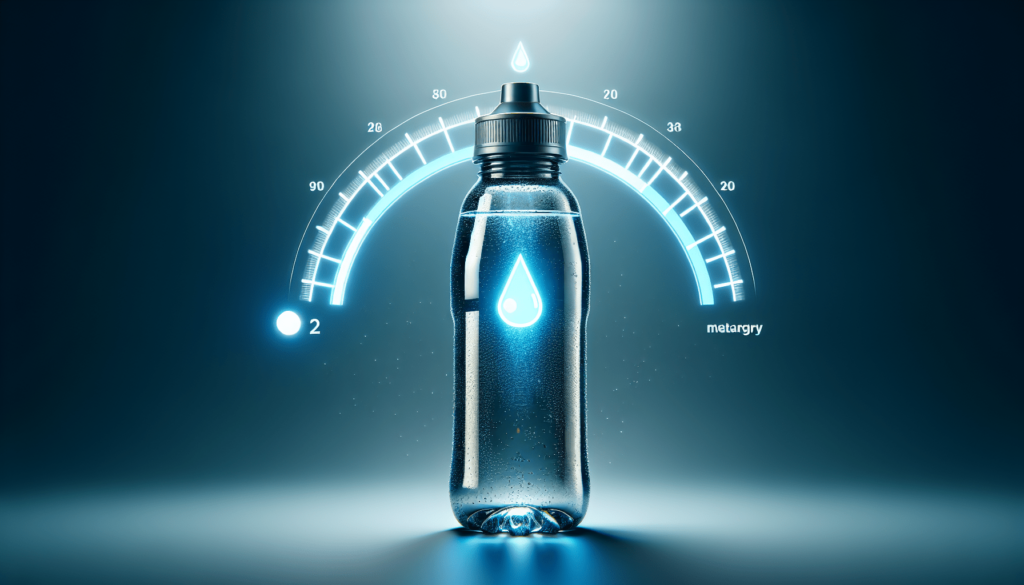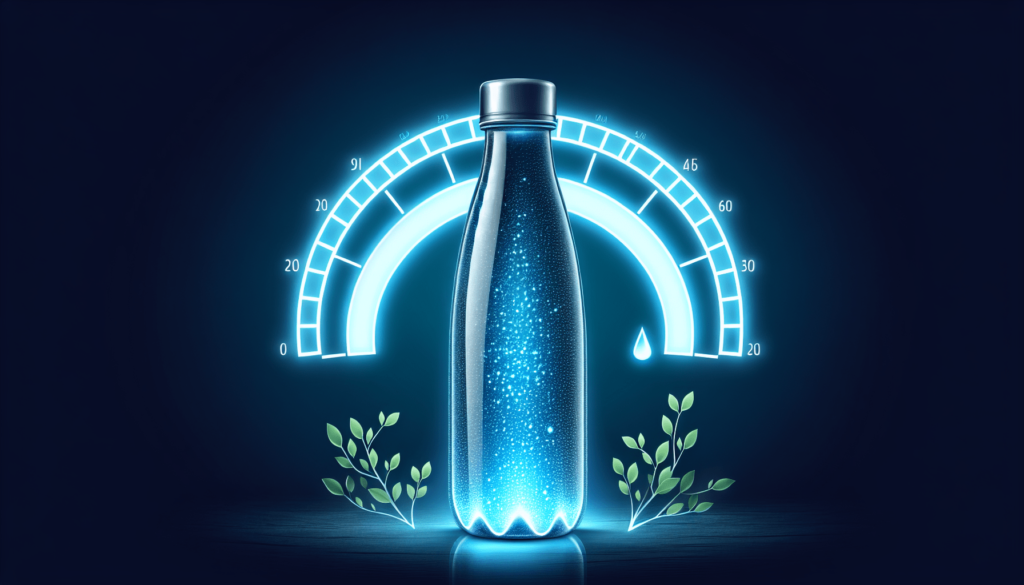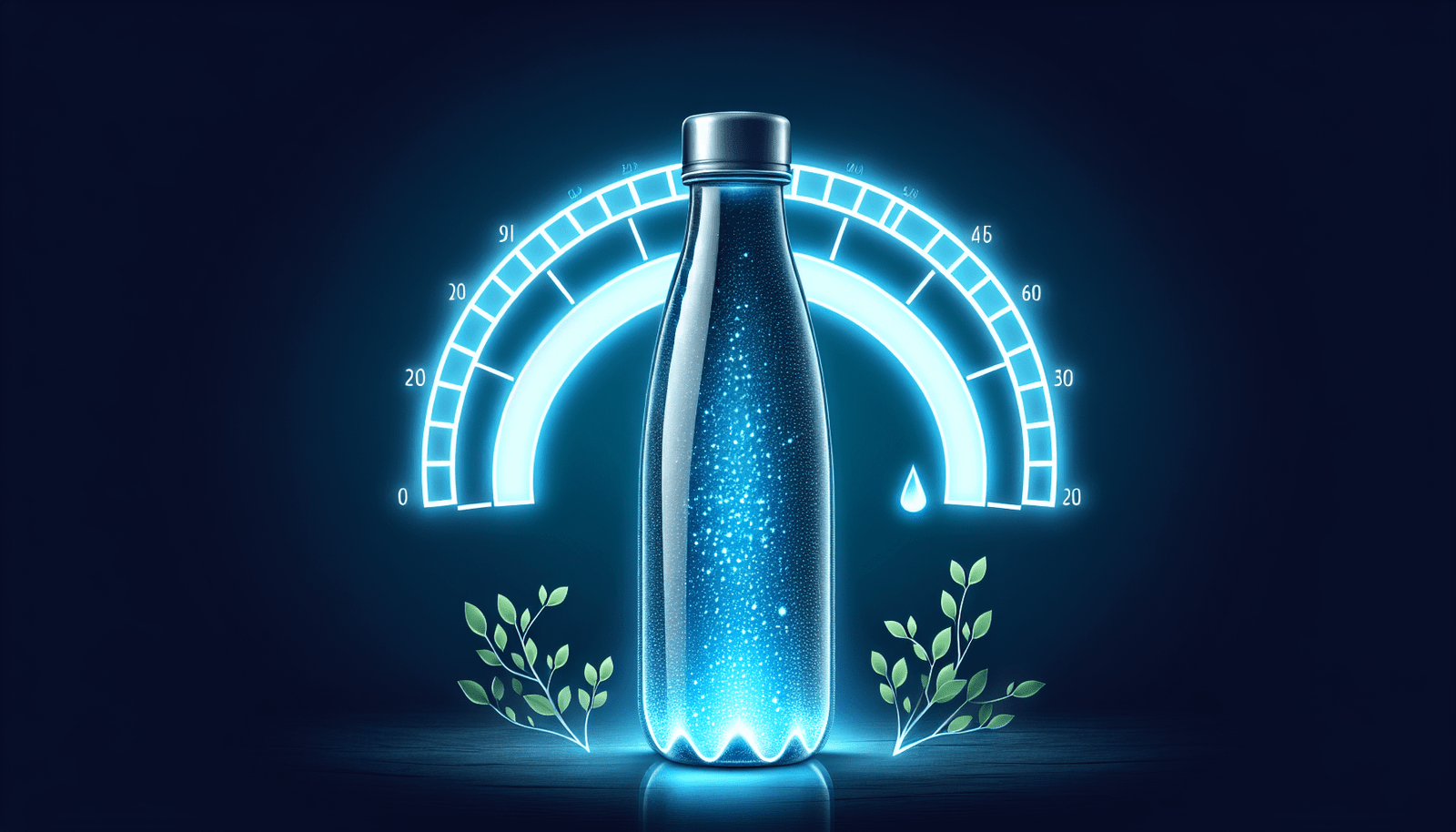Welcome to an interesting read about the fascinating connection between hydration and metabolism. Staying properly hydrated plays a crucial role in maintaining a healthy metabolism, as dehydration can actually slow down the rate at which your body burns calories. By understanding the link between the two, you can optimize your hydration levels to support a more efficient metabolism and overall well-being. Explore the importance of hydration in boosting your metabolism and learn how to incorporate healthy habits into your daily routine. Have you ever wondered about the connection between staying properly hydrated and your metabolism? Let’s dive into how drinking enough water can impact your body’s ability to efficiently burn calories and maintain overall health.

Importance of Hydration
Ensuring you are properly hydrated is crucial for your overall health and well-being. Water is essential for your body to function properly, as it plays a role in various bodily functions, including digestion, circulation, temperature regulation, and nutrient absorption. When your body is dehydrated, it can lead to a range of negative effects, such as fatigue, headaches, muscle cramps, and even impaired cognitive function.
Hydration and Weight Loss
Maintaining proper hydration levels can also support weight loss efforts. Water has zero calories, making it an excellent choice for replacing high-calorie sugary drinks. Drinking water before meals can also help you feel fuller and reduce the amount of food you consume, ultimately leading to fewer calories consumed. Studies have shown that increasing water intake is associated with weight loss, as it can boost metabolism temporarily and increase overall calorie expenditure.
Signs of Dehydration
It’s crucial to listen to your body’s signals to ensure you are staying properly hydrated. Some common signs of dehydration include dark urine, dry mouth, fatigue, headaches, dizziness, and muscle cramps. If you experience any of these symptoms, it may be a sign that you need to increase your water intake.
Understanding Metabolism
Metabolism refers to all the chemical processes that occur in your body to maintain life, such as converting food into energy. Your metabolism is influenced by various factors, including age, gender, genetics, muscle mass, and activity level. The rate at which your body burns calories at rest is known as your basal metabolic rate (BMR), and it accounts for the majority of the calories you burn each day.
Factors Affecting Metabolism
Several factors can impact your metabolism, including:
- Age: Metabolism tends to slow down with age, primarily due to a decrease in muscle mass and hormonal changes.
- Gender: Men typically have a higher metabolism than women, as they tend to have more muscle mass.
- Muscle Mass: Muscle tissue burns more calories at rest than fat tissue, so having more muscle can increase your BMR.
- Activity Level: Regular exercise can boost your metabolism, as physical activity requires energy expenditure.
- Genetics: Your genetic makeup can play a role in your metabolism, influencing how your body processes and burns calories.
How Hydration Affects Metabolism
Staying properly hydrated is essential for maintaining a healthy metabolism. Water plays a vital role in various metabolic processes, including nutrient transport, waste removal, and energy production. Dehydration can slow down your metabolism and make it more challenging for your body to efficiently burn calories. When you are dehydrated, your body may not function optimally, leading to a decrease in metabolic rate.
Hydration and Energy Production
Water is crucial for energy production in your body. It is involved in the process of converting food into energy through a series of chemical reactions known as metabolism. When you are well-hydrated, these metabolic processes can occur more efficiently, resulting in a higher energy output. Water also helps transport nutrients to cells and remove waste products, which are essential for energy production.
The Role of Water in Thermoregulation
Water is also essential for regulating your body temperature. When you become dehydrated, your body struggles to maintain a stable internal temperature, which can impact your metabolic rate. Your body requires energy to regulate its temperature, so being properly hydrated can help ensure that these energy-consuming processes run smoothly. Drinking water can help cool your body down when you are overheated, allowing your metabolism to function optimally.
Hydration and Exercise Performance
Proper hydration is crucial for maximizing exercise performance. When you are dehydrated, your body may struggle to maintain energy levels during physical activity, leading to fatigue, decreased endurance, and reduced exercise capacity. Drinking water before, during, and after exercise helps prevent dehydration and ensures that your muscles have an adequate supply of energy to perform at their best. Staying hydrated can also speed up recovery time and prevent muscle cramps.
Tips for Staying Hydrated
To maintain proper hydration and support your metabolism, consider the following tips:
- Drink Plenty of Water: Aim to drink at least eight 8-ounce glasses of water per day, and more if you are physically active.
- Eat Hydrating Foods: Incorporate fruits and vegetables with high water content into your diet, such as watermelon, cucumbers, and lettuce.
- Monitor Your Urine: Check the color of your urine to gauge your hydration levels – pale yellow to clear urine indicates proper hydration.
- Set Reminders: Use a water bottle with markings or set reminders on your phone to ensure you are drinking water throughout the day.
- Drink Before Meals: Have a glass of water before meals to help control portion sizes and support weight loss efforts.

Conclusion
In conclusion, staying properly hydrated is essential for supporting a healthy metabolism and overall well-being. Water plays a vital role in various metabolic processes, energy production, and thermoregulation, making it a crucial component of a balanced diet. By prioritizing hydration and incorporating these tips into your daily routine, you can optimize your metabolism, support weight loss goals, and enhance your overall health. Remember to listen to your body’s signals and ensure you are drinking enough water throughout the day to stay properly hydrated.

